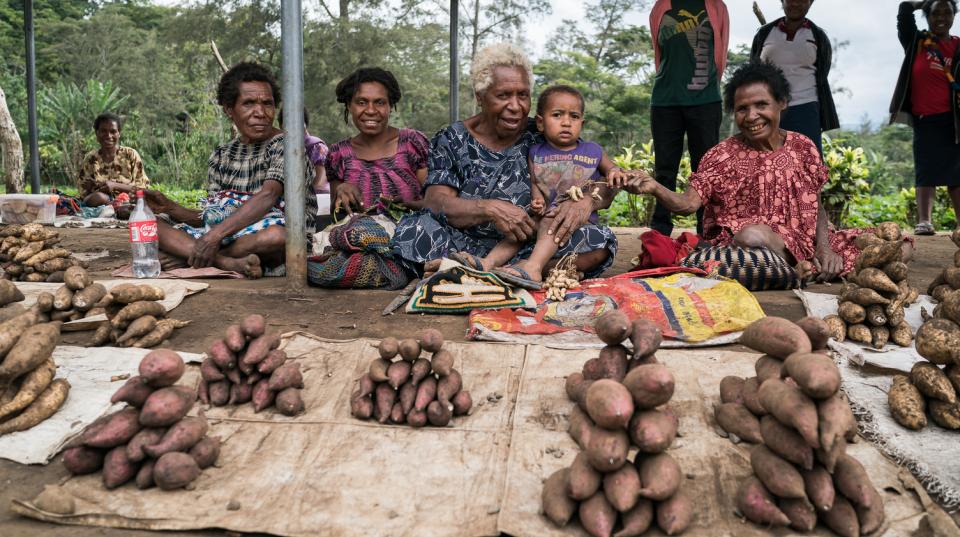Overview
This project aimed to enhance the economic development of PNG women smallholders and their families.
Most women farmers hope to improve their family livelihoods, but very few have the necessary agricultural and business acumen.
Women smallholder farmers in Papua New Guinea grow essential subsistence crops while caring for their families. They are key to agricultural livelihoods but face significant constraints. Many are educationally disadvantaged because they have not completed school and their access to training or extension services is limited.
A previous ACIAR project (ASEM/2010/052) demonstrated that a whole-of-family approach to farmer learning enabled farming families to work more equitably and effectively and improved their livelihoods. This project sought to understand the effectiveness of the approach at scale and across a broader range of commodities and geographies.
Project outcomes
- Enhanced the knowledge base of social scientists seeking to develop gender-inclusive research and training approaches for women and girls, especially for those with low literacy in the agriculture sector.
- Trained 165 women and 101 men as village community educators (VCEs) in the Family Farm teams modules. These VCEs have trained approximately 1,622 women and 869 men in their own local communities.
- Contributed information and knowledge about effective ways to improve women smallholders’ agricultural production, business acumen and financial skills.
- Provided data to other development projects with an agenda to improve gender equality in the PNG rural agricultural context and identify further indicators.
- Built knowledge about effective elements of leadership training.
- Contributed to new knowledge of village-based participatory action research for development.
- Informed practice in other developing countries that are supporting gender equitable economic pathways from subsistence farming.
- Two new resources developed.







